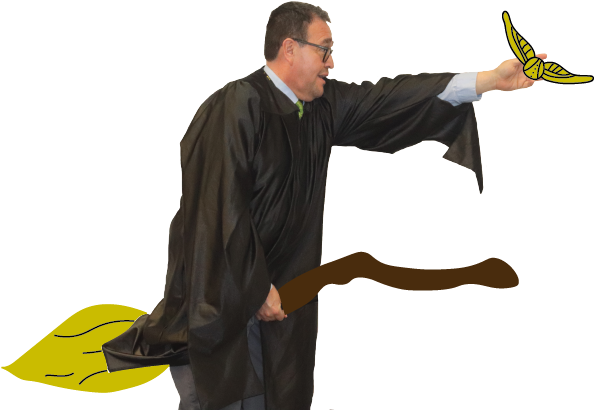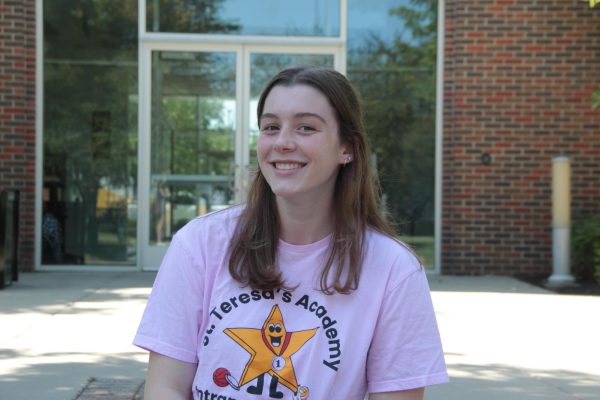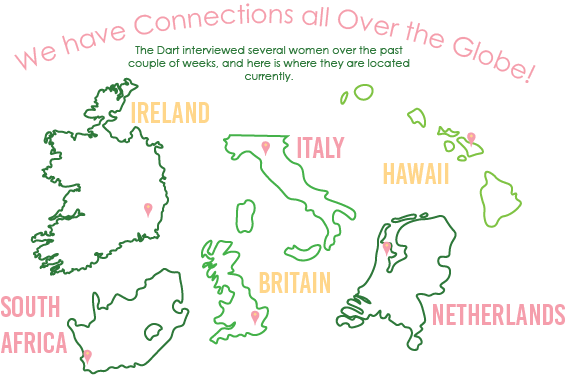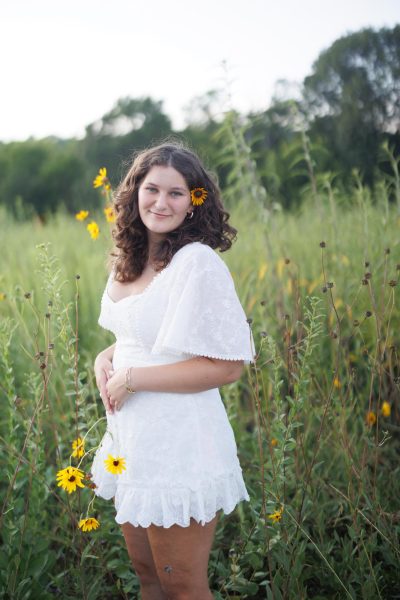The Lasting Legacy of the Wizarding World
The Harry Potter franchise has just celebrated its 20-year anniversary, and members of the STA community reflect on the impact that the series has made on their lives.

March 10, 2022
The “Harry Potter” book series has sold more than 500 million copies worldwide and has been translated into over 60 languages. In the 25 years since the first book was released, this series has spread world-wide and created quite a name for itself.
For social studies teacher Nic Shump, Harry Potter was something that brought his family together. He was introduced to the book by his kids and one of his favorite things to do with them was read the books.
“It’s the thing that my entire family would do,” Shump said. “I would be that dad that would go and get the books at midnight at Barnes and Noble right when they came out and then I would get home and [my kids] would be up and want to start reading them.”
His kids’ interest in reading these books was one of Shump’s biggest draws to the series. As a teacher, he was also excited about the fact that younger children were so interested in reading more advanced books.
“I liked the fact that even kids in elementary school were reading 300-400 page books,” Shump said. “I thought that was really cool, that people were so excited to read books of that length and then be really passionate about them.”
Senior Iris Kline and junior Ava Juliana Saggars were among the many kids who took an interest in Harry Potter. Kline was first introduced to the series in second grade and picked it up as a recommendation.
“ I had always loved reading, so my mom was like, ‘Of course you should read Harry Potter,’” Kline said.
Saggars had heard of the series and seen parts of the movies because her brother was a fan.
“I mostly decided to read it because I was wanting to get into reading,” Saggars said. “I was like, ‘Oh, Harry Potter is a very popular series. I should start with that.’”
After reading the series, the characters that stuck out to both Saggars and Shump were the outcasts. Saggars identifies with both Luna Lovegood and Neville Longbottom because she relates to their quirks and finds comfort in the fact that they don’t always seem to fit in.
“Luna is my favorite character because she’s just so fine with being different, and she has very much stuck out to me because she’s always able to say what’s on her mind,” Saggars said. “I also relate to Neville, because he’s just a very awkward person, and I’m a very awkward person.”
Although Shump doesn’t relate to his favorite character, Sirius Black, Shump also finds the fact that Black doesn’t fit in to be one of his most interesting character traits.
“I think [Sirius Black] is an interesting character, the way that he’s kind of an outcast from his family, and the way he’s originally presented to us,” Shump said. “He’s originally this murderous villain and then he becomes this sympathetic character, so I really like him a lot.”
Kline thinks that Harry Potter’s loveable characters are part of what makes the series so memorable. She identifies with Hermione Granger.
“My personality is based off of Hermione, and I feel like I’m just really similar to her,” Kline said.
Both Shump and Kline are members of the Gryffindor house. Shump has always been content with his house, because he likes the fact that Gryffindors typically try to be fair and just. Kline, however, has not always been happy with hers.
“I really wanted to be a Ravenclaw for a long time, because I just wanted to be smart, but I am a Gryffindor,” Kline said.
Saggars had a similar experience of discontent with her house, Hufflepuff, until she looked into what being a Hufflepuff really meant.
“When I first took the test, I was like, ‘Oh Hufflepuff. Great,’ and then I actually learned about the house, and now I see that it’s very much me,” Saggars said.
Over this past winter, Saggars was involved in the St. Teresa’s Academy production of the play “Puffs,” which expresses similar feelings about the house that Saggars had. “Puffs” is a story about Wayne, a Hufflepuff who attends school at the same time as Harry Potter.
“[Wayne] thought he was destined to be this person who would change the world and then everything just got foiled by Harry being there,” Saggars said. “But, the story is also about the “Puffs” coming to realize that they’re not just there and that they actually have other qualities that allow them to be good people.”
Along with “Puffs,” another way that Harry Potter is represented on STA’s campus is through the Harry Potter Club. Kline is one of the presidents of the extracurricular, which she started with her co-presidents after a possible interim week class about Harry Potter fell through. Kline thinks that the extracurricular is a great way for students to bond over their love for the series.
“It’s a good way for kids of all grade levels to connect, because we all have this in common, and if you like Harry Potter, you really like Harry Potter,” Kline said.
Both Saggars and Kline shared that they interact with Harry Potter-related content on TikTok, which has become increasingly popular in the past few years. Another form of Harry Potter-related media that has recently regained attention is a fan-written book about Harry Potter’s parents and their friends called “All the Young Dudes.” Kline shared about the difference between the general Harry Potter story and the “Marauders” story.
“The Marauders are way more fun because we have the Harry Potter books that say some things about them, but then ‘All the Young Dudes’ gets so much more into detail and I feel like you really love them more, and just get more attached to them because then they all die,” Kline said. “It’s more heartbreaking, so I feel more connected to them.”
The impact that Harry Potter and its related media has made on society is large, and Shump feels that it has been so impactful because of the storytelling.
“It’s good storytelling, and really hard to create a world that people are going to get so invested in,” Shump said. “In the end, I think the characters are really good characters and it’s just a really well created fictional world.”
Saggars believes that the intricately crafted world and its ability to be enjoyed by people of various ages is what has made the series last so long.
“People of all ages can be a part of it, because it’s not just a children’s story,” Saggars said. “It has so many deep layers to it.”
Kline feels that the lasting legacy of the series is due to it being a timeless and continually relatable story.
“[Harry Potter] is always going to be relatable to teenagers, even though it’s obviously a completely different world,” Kline said. “It’s fun to have characters to love, and it’s really easy to love them and Hogwarts and everything about it.”








